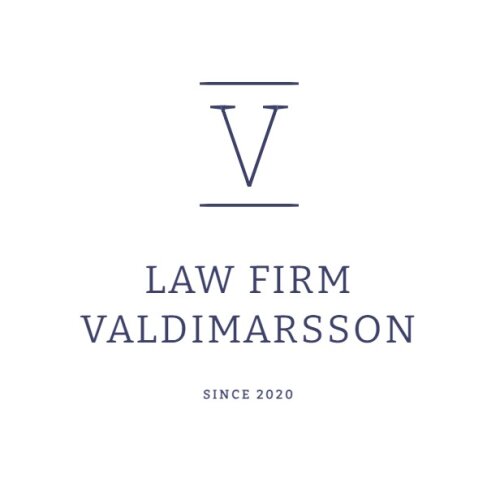Best Native People Lawyers in Reykjavik
Share your needs with us, get contacted by law firms.
Free. Takes 2 min.
List of the best lawyers in Reykjavik, Iceland
About Native People Law in Reykjavik, Iceland
In Reykjavik, Iceland, the legal landscape concerning native people primarily focuses on the rights of indigenous groups to protect their cultural heritage, land, and resources. Unlike many other countries, Iceland does not have a traditional indigenous population akin to First Nations in Canada or Native Americans in the United States. The indigenous groups often associated with the term in this context are typically Inuit populations in neighboring Greenland or Sami people from parts of the Nordic region, rather than Iceland itself. However, Icelandic law may still interact with broader international conventions relating to indigenous rights, which can impact native people residing in or connected to Reykjavik.
Why You May Need a Lawyer
Legal assistance might be necessary for native people or those advocating on their behalf in various scenarios. Some common situations include disputes over cultural heritage preservation, land use and ownership issues, or conflicts regarding resource exploitation. Additionally, legal representation may be required to ensure compliance with international laws and treaties that protect the rights of indigenous peoples. Understanding one's rights under Icelandic law, especially in relation to broader Nordic agreements or international frameworks, often necessitates specialist legal advice.
Local Laws Overview
Reykjavik, being Iceland's capital, adheres to national laws, which include statutes that may impact native people, particularly in relation to cultural preservation and land rights. Iceland has ratified international conventions that protect indigenous rights, and while not having an indigenous population of its own, it plays a role in regional diplomacy surrounding these matters. Key aspects of Icelandic law that might be relevant include the protection of cultural sites, environmental regulations affecting traditional lands, and adherence to international agreements like the United Nations Declaration on the Rights of Indigenous Peoples (UNDRIP).
Frequently Asked Questions
What defines native or indigenous people in Iceland?
Iceland itself does not have a traditional indigenous population. However, the term can refer to native peoples connected to Iceland through cultural, historic, or legal considerations, primarily involving broader Nordic or Arctic community interactions.
Are there specific laws protecting native cultural heritage in Reykjavik?
Yes, although Iceland lacks a native population, it respects international conventions that offer protection to indigenous cultural heritage, often cooperating with neighboring countries on related matters.
How does international law influence native rights in Iceland?
International laws and treaties, such as UNDRIP, impact Icelandic policies by setting standards for the treatment and rights of indigenous peoples, which Iceland supports in broader Nordic contexts.
What legal recourse is available for land disputes involving native people?
Legal recourse can involve mediation, negotiation, and the Icelandic courts, especially when disputes involve cultural heritage or environmental laws affecting traditionally significant lands.
Can native people from other countries seek legal recognition in Reykjavik?
While direct recognition may not be applicable, individuals can seek legal assistance to protect their rights under international agreements and Icelandic laws that honor global indigenous rights frameworks.
Are there any local organizations supporting native people in Reykjavik?
Yes, several NGOs and academic bodies may offer support or information, particularly those focused on human rights, cultural preservation, and regional collaboration within the Arctic and Nordic areas.
How are native environmental rights considered in Reykjavik?
Environmental rights tied to native peoples are often addressed through Iceland's laws on conservation and international commitments to sustainable development and respect for indigenous contributions.
What steps should someone take if they face discrimination based on indigenous status?
Individuals should report the incident to relevant human rights organizations and seek legal advice to explore possible remedies under Icelandic law and international discrimination protections.
Are native languages recognized in Reykjavik?
While Iceland primarily recognizes Icelandic, native languages from other regions may receive informal support in cultural and educational settings, advocated by relevant Nordic agreements.
What impact do Icelandic laws have on international treaties involving native rights?
Iceland's participation in international treaties reinforces its commitment to supporting native rights alongside Nordic and global counterparts, influencing domestic policy and practice.
Additional Resources
Those seeking further information or legal assistance regarding native people in Reykjavik can consider reaching out to the following:
- Amnesty International Iceland
- The Icelandic Human Rights Centre
- Nordic Sami Council
- University of Iceland's Faculty of Law
- UN Human Rights Regional Office for Europe
Next Steps
If you require legal assistance in matters related to native people in Reykjavik, it is crucial to identify a lawyer experienced in international human rights or Nordic agreements on indigenous peoples. Start by contacting local legal aid organizations or consulting the recommended resources above. They can provide guidance on obtaining a suitable lawyer and articulating your legal needs effectively. Additionally, remain informed about any changes in local or international laws that could impact your situation, ensuring you have access to updated legal and cultural context.
Lawzana helps you find the best lawyers and law firms in Reykjavik through a curated and pre-screened list of qualified legal professionals. Our platform offers rankings and detailed profiles of attorneys and law firms, allowing you to compare based on practice areas, including Native People, experience, and client feedback.
Each profile includes a description of the firm's areas of practice, client reviews, team members and partners, year of establishment, spoken languages, office locations, contact information, social media presence, and any published articles or resources. Most firms on our platform speak English and are experienced in both local and international legal matters.
Get a quote from top-rated law firms in Reykjavik, Iceland — quickly, securely, and without unnecessary hassle.
Disclaimer:
The information provided on this page is for general informational purposes only and does not constitute legal advice. While we strive to ensure the accuracy and relevance of the content, legal information may change over time, and interpretations of the law can vary. You should always consult with a qualified legal professional for advice specific to your situation.
We disclaim all liability for actions taken or not taken based on the content of this page. If you believe any information is incorrect or outdated, please contact us, and we will review and update it where appropriate.











